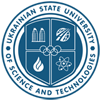'Library' in the Language Consciousness of Modern Students: from a Book Depository to a Cultural and Educational Hub (Based on a Free Associative Experiment)
DOI:
https://doi.org/10.15802/unilib/2024_313581Keywords:
associative experiment, associative field, linguistic consciousness, library, studentAbstract
Objective. The purpose of the given paper is to record modern students’ perception and interpretation of the library phenomenon, build associative field of the considered stimulus word, and analyze it in details. Basic options for the traditional and updated contextual compatibility of the lexeme library as an educational center, modern enlightening and cultural hub were presented and described in the article. Methods. In order to achieve the stated goal free associative experiment was conducted. General scientific methods of observation, comparison, generalization, description and systematization, as well as linguistic methods of linguistic observation and description were also utilized. Results. The results illustrate expansion of the connecting possibilities of the lexeme library and the transformation in its perception by Ukrainian and foreign students. Conclusions. The study proves that the interpretation of the library phenomenon by modern students doesn’t contradict codified meaning of the lexeme under consideration. Library is associated with learning, reading literature, acquiring new knowledge, skills and abilities. At the same time, the concept of the library has been expanded to correlate it with a renewed space for studying, spending free time, holidays, organizing events, and communicating with acquaintances.
References
Badenhorst, P., Martin, D., & Smolcic, E. (2019). Critical consciousness development for teachers of multilingual learners: a cultural/linguistic immersion program shaping early teaching careers. Teaching and Teacher Education, 136, 46-59. doi: https://doi.org/10.1016/j.tate.2023.104376 (in English)
Chumak, Y. (2022). Transformatsiia informatsiinykh resursiv publichnykh bibliotek Ukrainy v suchasnykh umovakh [Informational resources transformation of Ukrainian public libraries current conditions]. Ukrainian Journal of Library and Information Sciences, 10, 36-48. doi: https://doi.org/10.31866/2616-7654.10.2022.269445 (in Ukrainian)
Ding, M., Ding, T., Chen X., & Shi F. (2022). Using event-related potentials to identify user’s moods induced by product color stimuli with different attributes. Displays, 74, 98-112. doi: https://doi.org/10.1016/j.displa.2022.102198 (in English)
Goroshko, O., Poliakova, T., & Zasiekin, A. (2024). Viddzerkalennia pandemii COVID-19 u movlennievii svidomosti ukrainskykh studentiv [Reflection of the COVID-19 pandemic in the linguistic consciousness of Ukrainian students]. Psycholinguistics, 35(2), 24-64. doi: https://doi.org/10.31470/2309-1797-2024-35-2-24-64 (in Ukrainian)
Holikova, N., & Taranenko, K. (2022). The concept of «native language» in the minds of Ukrainians. Psycholinguistics, 32(2), 106-127. doi: https://doi.org/10.31470/2309-1797-2022-32-2-106-127 (in Ukrainian)
Kalmykova, L., Kharchenko, N., Volzhentseva, I., Kalmykov, H., & Mysan, I. (2020). Aktualizatsiia problematyky vnutrishnoho movlennia v psykholinhvistytsi komunikatsii: rezultaty systematychnoho ohliadu imetaanalizu [Actualization of the Internal Speech Problems in Psycholinguistics of Communication: The Results of a Systematic Review and Meta-Analysis]. Psycholinguistics, 28(1), 83-148. doi: https://doi.org/10.31470/2309-1797-2020-28-1-83-148 (in Ukrainian)
Kovalchuk, L., & Litkovych, Y. (2022). Psycholinguistic aspects of representing aggression in wartime media discourse. East European Journal of Psycholinguistics, 9(2), 67-81. doi: https://doi.org/10.29038/eejpl.2022.9.2.kov (in English)
Kuchma, T. (2013). Asotsiatyvne pole nominatsiy sotsial’noho statusu lyudyny v ukrayins’kiy, pol’s’kiy ta nimets’kiy movakh. Naukovi Zapysky. Seriya: Filolohichni Nauky, 4, 258-262. Retrieved from http://nbuv.gov.ua/UJRN/Nzfn_2013_4_52 (in Ukrainian)
Leshchenko, T., & Zhovnir, M. (2018). Movlennyevyy portret suchasnoho likarya (linhvo prahmatychnyy aspekt) [Speech portrait of modern doctor (linguopragmatic aspect)]. Current Issues of Social Studies and History of Medіcine, 1(17), 10-15. doi: https://doi.org/10.24061/2411-6181.1.2018.2 (in Ukrainian)
Leshchenko, T., & Zhovnir, M. (2023). Fenomen vyshyvanka v movnii svidomosti indiiskykh zdobuvachiv osvity v Ukraini (na materiali vilnoho asotsiatyvnoho eksperymentu) [Phenomenon of vyshyvanka in the linguistic consciousness of Indian students in Ukraine (based on a free associative experiment)]. The World of the Orient, 1(118), 101-113. doi: https://doi.org/10.15407/orientw2023.01.101 (in Ukrainian)
Lewandowska-Tomaszczyk, B., & Wilson, P. A. (2018). Sources of data and methodological foundations of a contrastive linguistic analysis of emotion concepts. Biuletyn Polskiego Towarzystwa Językoznawczego, 74, 157-190. doi: https://doi.org/10.17651/bptj.74.12 (in Ukrainian)
Liu, X., Horinouchi, H., Yang, Y., Yan, Y., Ando, M., Obinna, U. J., …Kambara, T. (2021). Pictorial referents facilitate recognition and retrieval speeds of associations between novel words in a second language (L2) and referents. Frontiers in Communication, 6, 1-13. doi: https://doi.org/10.3389/fcomm.2021.605009 (in English)
Lyubymova, S. (2020). Associative experiment in the study of a sociocultural stereotype. Studies about Languages, 36, 85-96. doi: https://doi.org/10.5755/j01.sal.0.36.23814 (in English)
Pedchenko, L. (2023). Asotsiatyvne pole kontseptu «voroh» u movnii svidomosti rosiian [The associative field of the concept “enemy” in modern Russian linguistic consciousness]. The Journal of V. N. Karazin Kharkiv National University. Series «Philology», 93, 70-74. doi: https://doi.org/10.26565/2227-1864-2023-93-10 (in Ukrainian)
Semashko, T., & Shvets, O. (2022). Asotsiatyvno-verbalna kvalifikatsiia sensornykh etnostereotypiv suchasnymy nosiiamy ukrainskoi movu [Associative-verbal qualification of sensory ethnic stereotypes made by modern ukrainian language native speakers]. Psycholinguistics, 32(2), 47-75. doi: https://doi.org/10.31470/2309-1797-2022-32-2-47-75 (in Ukrainian)
Semenova, O., & Khristych, N. (2022). Reprezentatsiia kontseptu KOLIR u frantsuzkii frazeolohichnii kartyni svitu ta yii spryimannia ukrainskymy studentamy-frankofonamy [Representation of COLOR Concept in the french phraseological picture of the world and its perception by Ukrainian francophone students]. Psycholinguistics, 32(2), 76-105. doi: https://doi.org/10.31470/2309-1797-2022-32-2-76-105 (in Ukrainian)
Slovnyk ukrayins’koyi movy. Vol. 1, 7. (1970). Kyiv, Ukraine: Naukova dumka.
Terekhova, D. (2000). Osoblyvosti spryiniattia leksychnoi semantyky sliv: psykholinhvistychnyi aspekt. Kyiv, Ukraine. (in Ukrainian)
Vasylynyna, O. M., Derevianko, L. I., & Doroshenko, S. M. (2022). Formation of Image Communications of the Library in the Modern Information Space. University Library at a New Stage of Social Communications Development. Conference Proceedings, 7, 155-164. doi: https://doi.org/10.15802/unilib/2022_270447 (in English)
Veivo, O., Porretta, V., Hyönä, J., & Järvikivi, J. (2018). Spoken second language words activate native language orthographic information in late second language learners. Applied Psycholinguistics, 39(5), 1011-1032. doi: https://doi.org/10.1017/S0142716418000103 (in English)
Yaremko, Ya. (2012-2013). Kontsept derzhava v ukrainskomu politychnomu dyskursi. Ukrainoznavchi studii,13-14,154-170. Retrieved from http://nbuv.gov.ua/UJRN/Us_2012-2013_13-14_19 (in Ukrainian)
Zahorodnia, O. (2018). Asotsiatyvni polia suspilno-politychnoi leksyky v movnii kartyni svitu ukraintsiv (kompiuterne opratsiuvannia rezultativ psykholinhvistychnoho eksperymentu) [Associative fields of social and political lexis in the Ukrainian language world view (computer processing of the psycholinguistic experiment results)] (PhD dissertation). National Pedagogical Dragomanov University, Kyiv, Ukraine. Retrieved from https://enpuir.npu.edu.ua/handle/123456789/40227 (in Ukrainian)








